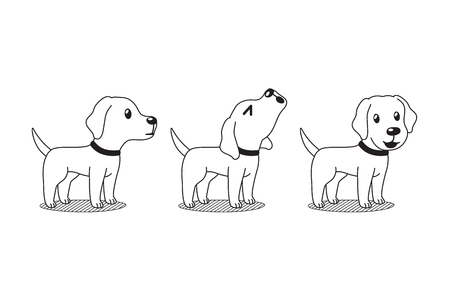1. Understanding the Importance of a Species-Specific Veterinarian
If your home is anything like mine, you might have a cheerful flock of chickens clucking in the backyard, a rabbit who rules the roost indoors, and maybe even a gecko sunning itself under a heat lamp. Whether your companions are furry, feathered, or scaled, finding the right veterinarian for their unique needs is one of the best things you can do for their health and happiness.
Why Species-Specific Knowledge Matters
Not every vet is trained to care for every type of animal. Dogs and cats are common patients, but if you have a parakeet, guinea pig, or bearded dragon, their medical needs are totally different! A species-specific veterinarian understands those differences inside and out. For example:
| Pet Type | Unique Needs | Why Specialized Care? |
|---|---|---|
| Rabbit | Delicate digestive systems, dental care | Regular vets may not recognize subtle symptoms or proper treatments |
| Bird | Fragile respiratory systems, special diets | A bird-savvy vet knows how to handle stress-prone birds safely |
| Reptile | Temperature/humidity requirements, unique diseases | Specialists can give accurate advice on habitat and nutrition |
| Pocket Pet (hamster, gerbil) | Tiny size makes exams and medication tricky | Species specialists use appropriate tools and doses |
| Exotic (ferret, hedgehog) | Different vaccines, anesthesia risks | A specialist knows which treatments are safe and effective |
The Risks of Generalized Veterinary Care for Exotics
Sometimes, well-meaning general practice vets may try to help with an unfamiliar species—but without special training, they could miss early signs of illness or recommend treatments that just aren’t suitable. For example, did you know rabbits can’t vomit? Or that many common dog and cat medications are dangerous for birds? That’s why it’s so important to seek out someone who knows your pet’s quirks from whisker to tail tip.
Your Pet Deserves the Right Fit
Choosing a vet who truly understands your animal’s species helps ensure they live their healthiest—and happiest—lives alongside you on your little patch of paradise.
2. Researching Local Options: Where to Start
If you’re living that cozy country life with a barn full of animals or just have a couple of unique pets at home, finding the right veterinarian can feel overwhelming—especially if your pet isn’t the usual cat or dog. But don’t worry, neighbor! There are plenty of friendly ways to narrow down local vets who really know their stuff when it comes to your pet’s species.
Online Resources for Finding a Specialist
The internet is a great place to start your search. Here are some handy online resources that can help you find veterinarians who specialize in your type of animal:
| Resource | What It Offers | Website |
|---|---|---|
| American Veterinary Medical Association (AVMA) | Search for vets by location and specialty, including exotic and farm animals | avma.org |
| Association of Exotic Mammal Veterinarians (AEMV) | Find experts for rabbits, guinea pigs, ferrets, and other small mammals | aemv.org |
| Association of Reptile and Amphibian Veterinarians (ARAV) | Look up vets who know reptiles, amphibians, and more unusual pets | arav.org |
| Local Animal Hospitals’ Websites | Many list their veterinarians’ special interests and credentials right online | Your local search or Google Maps |
| Yelp & Google Reviews | Read real-life experiences from fellow pet parents in your area | yelp.com, Google Maps |
Check Out Community Boards and Social Groups
Sometimes the best recommendations come straight from folks nearby. Check out:
- Local Facebook Groups: Search for “pet owners” or “[your city] animal lovers.” Residents often share honest feedback and trusted vet names.
- Nextdoor App: This neighborhood-based app is perfect for asking about specialized vets nearby. You might even meet someone with the same kind of pet!
- Barn Feed Stores or Pet Supply Shops: Old-fashioned? Maybe. Effective? Absolutely! The staff and regulars usually know which local vets are worth their salt for specific critters.
- Community Bulletin Boards: Check the library, post office, or coffee shop bulletin boards for business cards or flyers from area vets.
Narrow Down Your List With Trusted Directories
If you want to double-check credentials, use reputable directories that list board-certified specialists. These sites often let you filter by species expertise:
- American Board of Veterinary Practitioners (ABVP): Their directory helps you find certified specialists in everything from birds to cattle.
- Zoological Medicine Specialty Groups: For truly rare pets (think snakes or sugar gliders), these organizations maintain up-to-date lists of qualified vets.
- Your State Veterinary Medical Board: Most states have an online vet lookup tool so you can verify licenses and specialties.
A Few Quick Tips for Your Search
- Ask what species each vet regularly treats—don’t be shy!
- Look for clinics with special equipment (like bird anesthesia or reptile incubators).
- Read reviews carefully—see if people mention your type of pet specifically.
- Jot down phone numbers and addresses as you go so you can call or visit later.
Treating Every Animal Like Family… Even the Quirky Ones!
No matter where you live—from rolling fields to city blocks—there’s a vet out there who’ll treat your beloved pet like family. With these online tools and a little local word-of-mouth wisdom, you’ll be well on your way to finding just the right specialist for your furry, feathered, or scaly companion.

3. Leveraging Local Pet Communities and Farmers Markets
If you’re searching for a veterinarian who really understands your pet’s unique needs—whether you have a flock of backyard chickens, a sassy parrot, or a lovable herd dog—the best tips often come from folks right in your own neighborhood. Connecting with other animal lovers at local dog parks, farm co-ops, or weekend farmers markets can be a goldmine for firsthand recommendations. Let’s explore how these community spaces can help you find the right vet for your special pet.
Why Local Gatherings Matter
Places like dog parks and farmers markets are not just about socializing—theyre also hubs where pet owners share their real-life experiences. These gatherings attract people who raise goats, rabbits, reptiles, and more. Their stories about which vets truly understand exotic pets or livestock can save you hours of online research.
Where to Find Community Connections
| Community Spot | What You’ll Find | How It Helps |
|---|---|---|
| Dog Parks | Owners of all breeds and sizes, sharing pet care tips | Get referrals for vets who handle dogs and sometimes cats or small animals |
| Farmers Markets | Local farmers, backyard chicken keepers, hobbyists with unusual pets | Hear about veterinarians who work with livestock or birds |
| Farm Co-Ops & Feed Stores | People raising goats, pigs, horses, and more | Get leads on large-animal or mixed-practice vets nearby |
| Community Meetups & Clubs | Breed-specific groups, reptile clubs, rabbit fanciers | Find specialists for exotics, reptiles, or rare species |
How to Start the Conversation
You don’t need to be shy! Most pet owners love chatting about their animals. At the dog park or market stand, try questions like:
- “Who do you take your chickens to when they’re under the weather?”
- “Have you found a vet who’s good with reptiles around here?”
- “I’m new to goats—anyone recommend a great large-animal vet?”
A Few Extra Tips:
- Attend local animal events: Pet fairs and farm workshops often host booths for veterinary clinics.
- Check bulletin boards: Feed stores and community centers may have flyers or business cards from specialized vets.
- Join local Facebook groups: Many towns have online communities dedicated to animal owners where recommendations flow freely.
The more you tap into these local networks, the easier it gets to find that perfect veterinarian who knows exactly how to care for your feathered, furry, or scaly family members.
4. Questions to Ask Potential Veterinarians
Finding a vet who truly understands your pet’s species can make a world of difference, especially if you have a less common animal like a rabbit, reptile, or bird. Once you’ve found a few potential clinics, it’s time to ask the right questions! Here’s a handy guide to help you make sure your new veterinarian is the perfect fit for your furry, feathered, or scaly friend.
Key Questions to Ask
Before scheduling an appointment, call the clinic and chat with the staff or vet. Here are some important questions that can help you assess their expertise and experience:
| Question | Why It Matters |
|---|---|
| Do you have experience treating [your pets species]? | This helps ensure they’re familiar with your pet’s unique needs. |
| How many [your pets species] patients do you see each month? | Gives insight into how often they handle animals like yours. |
| What kind of continuing education or training do you have in exotic or specific species medicine? | Shows dedication to staying updated on best practices. |
| Are there any certifications related to my pet’s species? | Special certifications mean extra expertise! |
| Do you have specialized equipment for diagnosing and treating my pet’s species? | Certain pets need special tools for proper care. |
| If my pet needs emergency care after hours, what should I do? | You’ll want to know their plan for emergencies, especially for exotics. |
| Can you provide references from other clients with the same type of pet? | Hearing from fellow pet parents can give extra peace of mind. |
| What is your approach to preventative care for this species? | Prevention is key! Their answer should show they understand species-specific health routines. |
Tips for the Conversation
- Be specific: Don’t just ask if they treat “exotics.” Mention your exact pet—like “African Grey parrot” or “leopard gecko.”
- Take notes: Jot down answers so you can compare different clinics later.
- Trust your gut: A good vet will be happy to answer your questions and won’t rush you off the phone.
What Else to Look For
If possible, stop by the clinic before booking an appointment. Check if the waiting area feels calm and clean, and notice if staff seem comfortable handling different kinds of pets. Every animal—from guinea pigs to goats—deserves a caring expert who understands their quirks!
5. Visiting the Clinic: What to Look For
Once you’ve narrowed down your list of potential veterinarians, it’s time for a visit! Touring the clinic is a great way to get a feel for the place and see if it’s the right fit for both you and your pet—whether you have a rabbit, parrot, bearded dragon, or a barn full of goats. Here are some tips to help you make the most out of your visit:
Tips for Touring a Veterinary Clinic
- Schedule Ahead: Call ahead and ask if you can tour the clinic. Some clinics offer open houses or will let you pop in during quieter hours.
- First Impressions Matter: Notice how clean and organized the clinic is as soon as you walk in. A tidy waiting area says a lot about their attention to detail.
- Observe Pet Friendliness: Look for separate waiting areas or accommodations for different species. This helps reduce stress for everyone—from anxious cats to curious ferrets!
Meeting the Staff
- Friendly Faces: Are the receptionists and technicians welcoming? Watch how they interact with pets and owners alike.
- Ask Questions: Don’t be shy! Ask about their experience with your pet’s species and any special certifications they might have.
- Communication Style: Do they explain things clearly? Good communication is key when it comes to your pet’s health.
Checking Facilities & Equipment
A specialized vet should have the right tools and spaces for your specific animal. Here’s a quick table of what to look for by species:
| Pet Species | Special Facilities/Equipment |
|---|---|
| Birds (Parrots, Finches) | Separate exam rooms, avian-safe disinfectants, oxygen cages |
| Rabbits & Small Mammals | No-slip tables, quiet recovery areas, dental tools for small mouths |
| Reptiles (Snakes, Lizards) | Temperature-controlled enclosures, UV lamps, reptile-specific medications |
| Pocket Pets (Hamsters, Guinea Pigs) | Tiny scales, gentle handling protocols, safe anesthesia options |
| Livestock (Goats, Chickens) | Larger exam areas, outdoor pens, farm-call vehicles |
Pet-Friendly Environment Checklist
- Coffee table books or magazines about animals—shows passion!
- Treat jars at reception (bonus points if there are options for different species!)
- No strong chemical smells—clean but not overpowering
- Smooth flow from check-in to exam room; minimal wait times help keep pets calm
- Cute artwork or pet photos on display—gives that homey touch we all love on the farm!
Your Comfort Counts Too!
If you and your critters feel at ease during your visit, that’s a great sign you’ve found a place that values both two-legged and four-legged family members. Trust your gut—if the environment feels welcoming and staff show genuine interest in your unique animals, you’re on the right track.
6. Evaluating Fit and Building a Lasting Relationship
Feeling Comfortable with Your Vet: Trust Your Instincts
Choosing a veterinarian for your unique pet is more than finding someone with the right credentials—it’s about feeling comfortable and confident that your beloved companion is in good hands. Whether you’re bringing in a chatty parrot, an energetic pup, or a curious bearded dragon, trust your instincts during your first visit. Notice how the vet interacts with both you and your pet. Are they gentle? Do they speak in a way that puts you at ease? Does your furry, feathered, or scaled family member seem relaxed around them?
Questions to Ask During Your First Visit
It’s totally okay to come prepared with questions! Here are some helpful things to ask:
| Question | Why It Matters |
|---|---|
| How much experience do you have with my pet’s species? | Ensures the vet understands species-specific needs. |
| What emergency care options are available? | You want peace of mind if something unexpected happens. |
| Do you offer wellness plans or preventive care packages? | These can help keep routine costs down and promote health. |
| How do you handle anxious pets? | A calm approach makes visits less stressful for everyone. |
Building Trust Over Time
A great relationship doesn’t happen overnight—just like training a puppy or earning your bunny’s trust, it takes time and consistency. Try to stick with the same veterinarian or clinic when possible. This helps them get to know your pet’s personality, quirks, and medical history. Regular check-ins, even just for nail trims or annual exams, help build familiarity for everyone involved.
Signs You’ve Found the Right Vet
- Your questions are answered clearly and patiently.
- Your pet isn’t rushed through appointments.
- The staff remembers your pet’s name (and maybe even yours!).
- You feel heard and respected as part of your pet’s care team.
Caring for All Kinds of Critters
No matter if you’re snuggling a sleepy cat, wrangling playful ferrets, or tending to turtles, finding a vet who “gets” your animal can make all the difference. Building a positive relationship means better health outcomes and less stress for both you and your beloved companion—so don’t hesitate to take your time and find the perfect fit!


